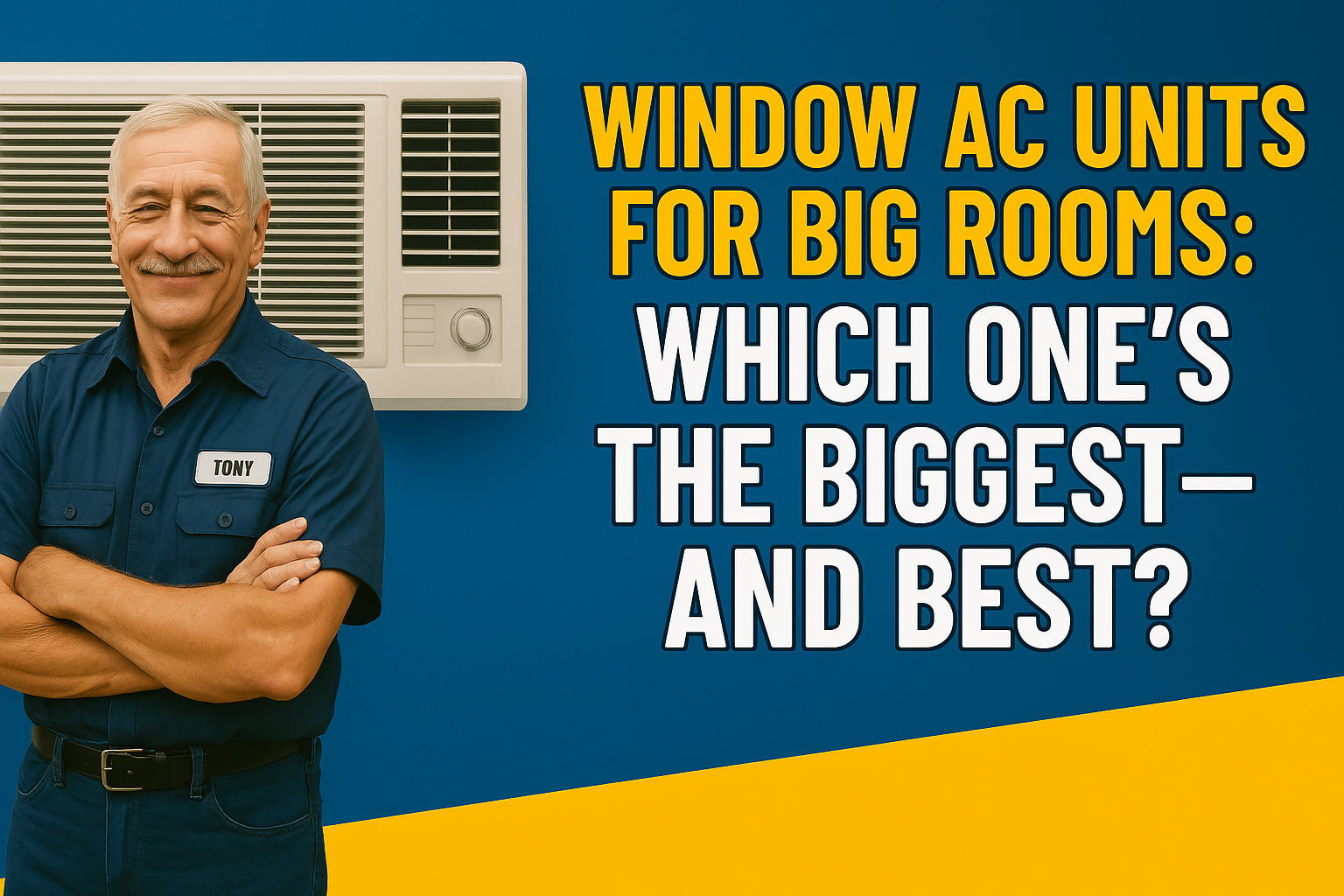👋 Hey Folks! Tony Your Trusted Tech Here, are you looking to cool a large space with a powerful window air conditioner? Tony the Trusted Tech breaks down the top high-BTU window AC units, their pros and cons, and when it might be time to consider a central system like the 2.5 Ton 14.5 SEER2 Air Conditioner and Air Handler System. Stay cool and informed! ❄️🔧
🧊 Understanding High-BTU Window Air Conditioners
When it comes to cooling large spaces, not all window air conditioners are created equal. The cooling capacity of these units is measured in BTUs (British Thermal Units), and for larger rooms, you'll need a unit with a higher BTU rating. Typically, window AC units range from 5,000 to 25,000 BTUs, with the higher end suitable for spaces up to 1,500 square feet.
Some of the largest window air conditioners on the market include:
❄️ Frigidaire 25,000 BTU Window Air Conditioner: This unit is known for its energy efficiency and ability to cool large rooms effectively. It features multi-directional airflow and three fan speeds, ensuring optimal circulation. The slide-out chassis design simplifies installation and maintenance.
❄️ Perfect Aire 25,000 BTU Window Air Conditioner: Designed for spaces up to 1,500 sq. ft., this unit offers both cooling and heating capabilities. It boasts smart modes for self-regulation and a full-function remote with "Follow Me" technology, allowing you to control the temperature from anywhere in the room.
❄️ GE 25,000 BTU Electronic Window Air Conditioner: Suitable for extra-large rooms, this model provides reliable cooling performance. It features electronic controls, a digital thermostat, and a remote control for convenience.
⚡ Installation and Power Requirements
Before you rush to pick up one of these high-output ACs, let’s talk about power. Units in the 18,000 to 25,000 BTU range almost always require a 230V outlet, which isn’t standard in most rooms. According to Compact Appliance's electrical requirements guide, it’s critical to understand your home’s electrical layout before installing a heavy-duty unit. Plugging a 230V unit into a 115V outlet simply isn’t safe—or functional.
Not only voltage, but plug type matters too. Some models use unique configurations like tandem or large tandem plugs, which won’t fit a standard socket. The GE plug type compatibility page provides helpful visuals and specs so you can make sure the unit you buy will actually work with your home’s setup. When in doubt, call an electrician to check for compatibility or make the needed upgrades.
🏠 When to Consider a Central Air System
Window units are great—especially high-BTU ones—for spot cooling, bonus rooms, or large single areas. But if you’re trying to keep an entire home cool, it's worth asking if a central air system makes more sense. Something like the 2.5 Ton 14.5 SEER2 Air Conditioner and Air Handler System is built to cool multiple rooms at once with even, quiet, and energy-efficient performance.
One of the biggest perks? Even Cooling. Central air moves air through a series of ducts, meaning every room stays at your desired temperature without hot spots.
Then there's energy efficiency. While multiple window units can drive up your electric bill, a central system—especially one that's properly sized and has a solid SEER2 rating—can cool your entire home more efficiently. According to HVAC Alliance Expert, homeowners often see lower long-term costs and better indoor comfort with central AC.
There's also the aesthetics angle. Central air systems are nearly invisible inside your living spaces—no bulky boxes sticking out of windows or humming in the background. And speaking of health, modern central AC systems often include filtration features. As Yoder HVAC explains, they help remove dust, allergens, and other airborne irritants, making your indoor air cleaner and safer.
💭 Final Thoughts from Tony 💭
Choosing the right air conditioning solution depends on your specific needs. For large single rooms, a high-BTU window unit can be effective. However, for whole-house cooling, investing in a central air system might offer better comfort and efficiency in the long run.
Remember, it's not just about the BTUs; consider factors like room size, insulation, and your home's electrical capacity. Always consult with a professional to determine the best fit for your situation.
🛠️ When it comes to comfort, I’ve got your back. Keep it cool
— Tony 🛠️







